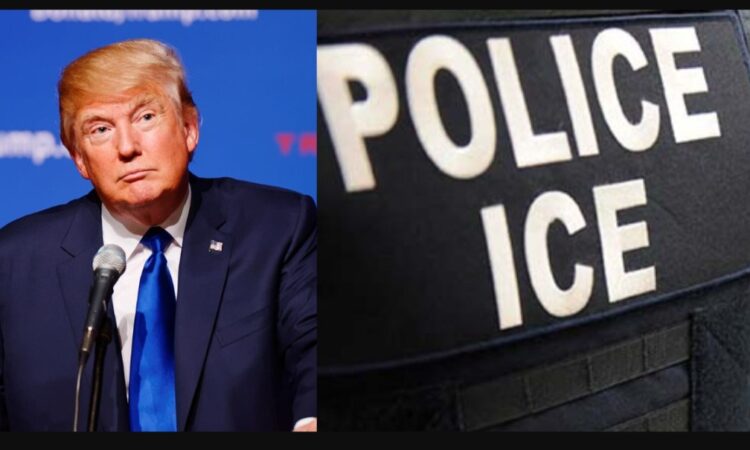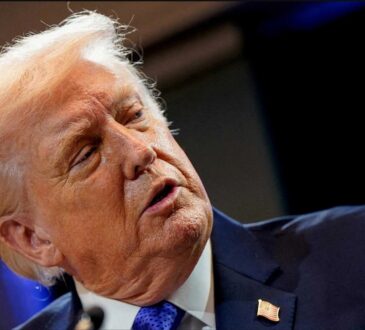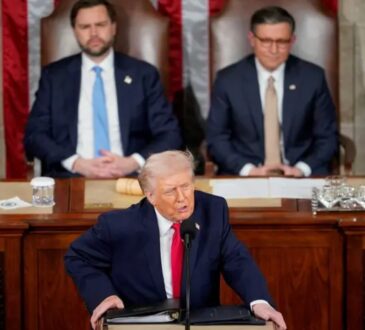
President Donald Trump has intensified his immigration crackdown in Minnesota, especially on the Somali community living in Minneapolis. His administration is now moving to end Temporary Protected Status, known as TPS, for thousands of Somali immigrants.
This comes after accusations that millions of dollars in Minnesota welfare funds were stolen and sent overseas by a small group of people connected to the Somali-American community. Some reports even claim the money was used to support terrorist activity, although these allegations are still being debated.
On Monday, the city of Minneapolis began preparing for possible consequences. ICE Chief Todd Lyons confirmed in an interview with Newsmax that agents are ready to begin deporting Somali residents the moment TPS is officially lifted. According to Lyons, once TPS ends, many Somali Minnesotans would immediately lose their legal status and become undocumented, which puts them at risk of removal.
Lyons repeated Trump’s message that fraud is weakening America’s system, and he argued that the government must be strict about who enters the country. He even brought up the 9/11 attacks, saying that some of the terrorists entered the U.S. using fraudulent documents. In his view, this shows why immigration screening must be extremely careful. He stated that anyone who came to the United States under false information would be removed without hesitation.
Trump made the announcement on Truth Social, saying that welfare fraud within the Somali community is the reason he is ending their TPS protections. He claimed that the U.S. cannot allow people who “steal from taxpayers” or “pose national security risks” to remain in the country.
However, community leaders in Minnesota strongly disagree with the administration’s actions. Many local Somali families have lived in Minnesota for years, some for decades. Their children go to school there, they work there, and they have built full lives in the state. These families fear that ending TPS will rip parents away from their children, destroy long-standing neighborhoods, and create unnecessary suffering.
Muslim civil rights groups also criticized Trump’s move, calling it an unfair attack on one of the most vulnerable immigrant communities in America. They believe the fraud allegations are being used to target all Somali immigrants, even though only a tiny number of individuals were ever linked to the welfare scheme. To them, punishing thousands of innocent people for the actions of a few is not only cruel but dangerous.
Economists and local business owners have also raised their voices. The Somali community plays a major role in Minneapolis’ workforce and small business economy. Deporting thousands of people at once could hurt local companies, weaken the job market, and reduce economic activity in the region.
National immigration advocates say this decision also puts thousands of U.S.-born children at risk, since many have parents who came to America under TPS. If their parents are deported, these children could end up separated from their families or forced to move to a country they have never known. Legal experts warn that the courts may soon be overwhelmed with emergency cases, appeals, and challenges if mass removals begin.
Advocates urged the Department of Homeland Security to reconsider before signing off on the policy. They argue that TPS holders are people who fled war, famine, and violence in Somalia, and many of them have lived peaceful, productive lives in the U.S. for a long time.
Despite the growing pushback, ICE officials say they are preparing for “immediate action” as soon as DHS Secretary Kristi Noem approves the order. This has left the Minneapolis Somali community in fear and uncertainty. Families are afraid to go to work, take their children to school, or even open the door when someone knocks.
The situation has turned Minnesota into one of the central battlegrounds in America’s ongoing fight over immigration policy. Many are waiting to see how far the federal government will go, and whether community voices, human rights concerns, and political pressure can slow or stop what may become one of the largest deportation efforts in the state’s history.
As tension grows and emotions run high, Minnesota is holding its breath, hoping that the people who have called the state home for so long won’t suddenly lose everything overnight.




